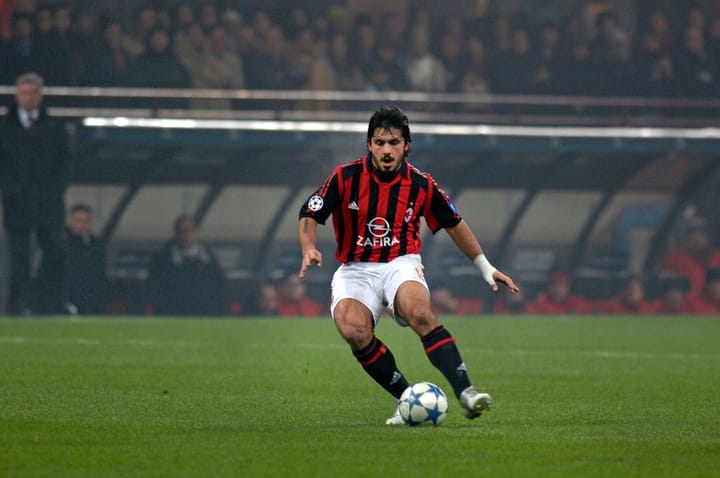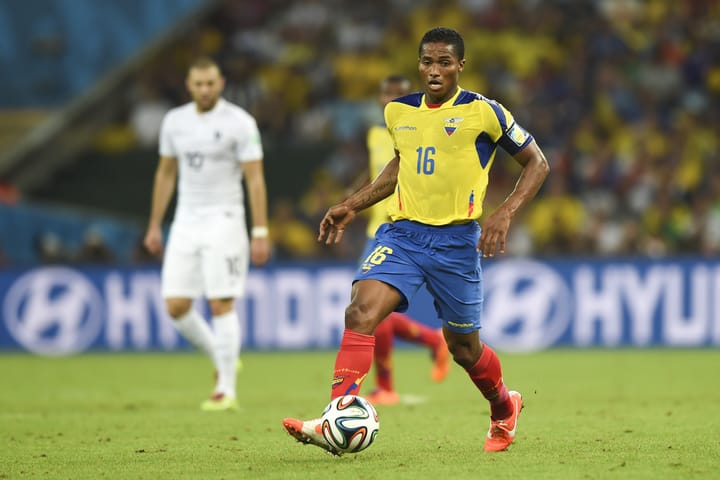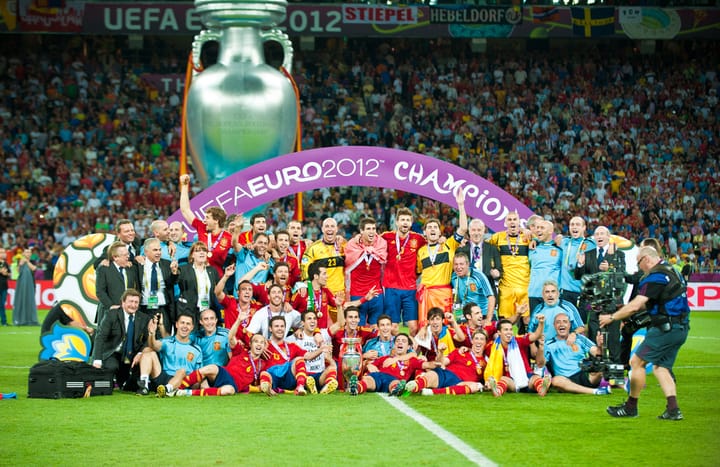The Eagles of Polish Football: These are 5 of Poland’s Greatest Soccer Players
Poland, a nation with a rich footballing heritage, has produced some of the game's most exceptional talents. Dive into this article as we celebrate and analyze the illustrious careers of the top five Polish soccer players of all time.

Poland, a nation steeped in history and culture, has gifted the world with its fair share of footballing legends. From the snow-laden pitches of Poznań to the buzzing stadiums of Warsaw, the Polish soil has been fertile ground for the germination of soccer maestros. In a country where football is not just a sport but an embodiment of pride and heritage, several players have etched their names in the annals of the game.
This article takes you on a nostalgic journey through the illustrious careers of Poland's most iconic soccer players. We will explore how these Eagles of Polish football have soared above and beyond, carving a special place for Poland in the global tapestry of soccer.
Zbigniew Boniek
Zbigniew Boniek, born on March 3, 1956, in Bydgoszcz, Poland, is regarded as one of the greatest Polish footballers of all time and one of the best European players of his generation. Nicknamed “Zibì,” he was an immensely gifted midfielder and forward, known for his technical skills, football intelligence, and versatility on the pitch.
Boniek's career began at Zawisza Bydgoszcz, but it was at Widzew Łódź where he first gained national recognition. During his time at Widzew, Boniek helped the club win the Polish league championship and earned his place in the Polish national team. His performances in Poland caught the attention of clubs across Europe, and he eventually made a high-profile move to Italian giants Juventus in 1982.
The move to Juventus proved pivotal in his career. Boniek quickly adapted to the Italian game and played an instrumental role in one of the most successful periods in Juventus' history. During his time with the club, he won several domestic and international honors, including the Serie A title, the Coppa Italia, the European Cup Winners' Cup, and the European Cup (now known as the UEFA Champions League).
However, it was on the international stage where Boniek truly etched his name into soccer folklore. He was a central figure in the Polish national team during the 1970s and 1980s and played a crucial role in Poland's third-place finish at the 1982 FIFA World Cup. His performance in the tournament was outstanding, with a particularly memorable hat-trick against Belgium in the second round. Boniek's displays earned him a place in the 1982 World Cup All-Star Squad.
After leaving Juventus, Boniek had a brief stint with AS Roma before retiring from professional football in the late 1980s. His impact on the game was recognized internationally when he was named in Pelé’s FIFA 100 list of the world's greatest living players in 2004.
Post-retirement, Boniek has remained active in football. He had a brief spell as a manager and has been a successful football administrator. In 2012, he was elected President of the Polish Football Association (PZPN), a position that underlines his lasting influence and stature in Polish football.
Robert Lewandowski
Robert Lewandowski, born on August 21, 1988, in Warsaw, Poland, is widely regarded as one of the greatest strikers of his generation and one of the most prolific goal-scorers in football history. With his impeccable finishing, positioning, and ability to score with both feet and his head, Lewandowski has redefined the role of a modern center-forward.
Lewandowski began his professional career at Znicz Pruszków in the Polish third division. His goal-scoring prowess soon earned him a move to Lech Poznań in the Ekstraklasa, where he continued to flourish. After helping Lech Poznań to a league title in 2010, he caught the attention of clubs abroad.
In 2010, he moved to Borussia Dortmund in the Bundesliga. Under coach Jürgen Klopp, Lewandowski developed into one of the deadliest strikers in Europe. He played a pivotal role in Dortmund’s back-to-back Bundesliga titles in 2011 and 2012, as well as their run to the UEFA Champions League final in 2013.
In 2014, Lewandowski made a high-profile move to Bayern Munich. His career reached stratospheric heights with the Bavarian club. He has been an integral part of multiple Bundesliga-winning teams and played a crucial role in Bayern's treble-winning season in 2019-2020, which included the UEFA Champions League.
One of Lewandowski's most notable achievements came during the 2015-16 Bundesliga season when he scored five goals in nine minutes against Wolfsburg, setting several records. Furthermore, during the 2020-21 season, he broke Gerd Müller's long-standing record of 40 goals in a single Bundesliga season by scoring 41 goals. He is one of only two players, alongside Johan Cruyff, to achieve the European treble while being the highest goalscorer in all three competitions, and the first to do it as the sole top scorer.
In 2022 Lewandowski moved to Barcelona, where he became one of the most important contributors to their league title, by becoming the top scorer with 23 goals in 34 matches, becoming the first player in top 5 European leagues to get top scorer award in six consecutive seasons.
On the international stage, Lewandowski has been the talisman of the Polish national team. He has represented Poland in multiple European Championships and World Cups, and is the country’s all-time leading scorer.
Off the pitch, Lewandowski is known for his professionalism and dedication to physical fitness. His strict regimen and attention to detail have allowed him to maintain an incredibly high level of performance well into his 30s.
Awards and accolades have been numerous for Lewandowski. Among them, he has been named the Polish Player of the Year multiple times and won the FIFA Best Men’s Player award.
Grzegorz Lato
Grzegorz Lato, born on April 8, 1950, in Malbork, Poland was a winger renowned for his pace, stamina, and goal-scoring ability, and he remains one of the most iconic figures in Polish football history.
Lato's professional career began at Stal Mielec, a club he would represent for over a decade. During his time at Stal Mielec, Lato established himself as a highly effective goal-scorer, helping the club win two Polish league titles in 1973 and 1976. His performances at Stal Mielec earned him a place in the Polish national team, and it was on the international stage that Lato truly shone.
Lato's most notable achievements came in the 1974 FIFA World Cup, held in West Germany. During the tournament, Lato displayed incredible form, scoring a total of seven goals, which earned him the Golden Boot as the tournament’s top goal-scorer. Notably, his goals were instrumental in helping Poland secure a third-place finish, which remains one of the nation's greatest football achievements.
Lato continued to be an essential part of the Polish national team, and in 1976, he contributed to Poland’s winning the Olympic gold medal in Montreal. He also played in the 1978 and 1982 World Cups, with the latter seeing Poland once again achieve third place. His performances in the 1982 World Cup were also commendable, as he was one of the team’s veteran players by that time.
After the 1982 World Cup, Lato’s international career came to an end. He made 100 appearances for Poland and scored 45 goals, making him one of Poland's all-time leading scorers. After leaving Stal Mielec, Lato had brief spells abroad with clubs such as KSC Lokeren in Belgium and Atlante in Mexico before retiring from professional football.
After his playing career, Lato remained involved in football. He ventured into football administration and politics. In 2001, he was elected as a senator in Poland, and in 2008, he was elected President of the Polish Football Association (PZPN), a position he held until 2012.
Włodzimierz Lubański
Włodzimierz Lubański, born on February 28, 1947, in Gliwice, Poland, was a forward known for his powerful shots, agility, and goal-scoring instincts. His career, spanning two decades, was marked by both club and international success.
Lubański's professional career began at Górnik Zabrze, one of Poland's most successful clubs. He made his first-team debut as a teenager in the early 1960s and quickly became a sensation. During his time at Górnik Zabrze, Lubański helped the club win six Polish league titles and six Polish Cups. His goal-scoring exploits were astonishing, and he was Ekstraklasa's top scorer for four seasons.
On the international stage, Lubański was just as impressive. He made his debut for the Polish national team in 1963, aged only 16. Over the next decade, Lubański became one of Poland’s key players. He represented Poland in the 1972 Olympics, helping the team secure a gold medal. He had amassed 75 caps by the time his international career came to an end, and he had scored 48 goals, making him Poland's all-time leading scorer at the time (Robert Lewandowski later broke this record).
However, Lubański’s career was not without its share of setbacks. In 1973, he suffered a severe knee injury during a World Cup qualifying match against England. This injury kept him out of the 1974 FIFA World Cup, where Poland finished third. It's widely believed that had Lubański been fit, Poland might have achieved even more in that tournament.
After recovering from his injury, Lubański continued to play at a high level, but he eventually sought new challenges abroad. In the late 1970s, he moved to Belgium, where he played for several clubs, including Lokeren and Gent. Even in the latter stages of his career, Lubański remained a reliable goal-scorer and contributed significantly to his teams.
After retiring from professional football, Lubański stayed involved in the sport through coaching and administrative roles. He also received numerous accolades and honors, both in Poland and internationally, in recognition of his contributions to football.
Kazimierz Deyna
Kazimierz Deyna, born on October 23, 1947, in Starogard Gdański, Poland, and passed away on September 1, 1989, was an exceptional footballer who is widely celebrated as one of Poland's greatest players. An attacking midfielder, Deyna was known for his vision, sublime ball control, pinpoint passing ability, and leadership on the pitch. His footballing intelligence and grace made him a standout figure during the golden era of Polish football in the 1970s.
Deyna began his professional career at ŁKS Łódź, but it was at Legia Warsaw where he truly made his mark. His tenure at Legia Warsaw from 1966 to 1978 saw him become a club legend, contributing significantly in both domestic and international competitions. He helped Legia secure two Polish Cups and was instrumental in the team’s impressive performances in European competitions.
On the international stage, Deyna was a central figure for the Polish national team. He made his debut in 1968, and his contribution to the team's success in the following years was immeasurable. One of his crowning achievements was at the 1972 Munich Olympics, where he played a crucial role in helping Poland secure a gold medal.
Deyna’s iconic status was further cemented at the 1974 FIFA World Cup in West Germany. His impeccable performances, including two goals against Brazil, played a vital part in Poland’s third-place finish - the country’s best result in World Cup history at that time. Deyna was named to the tournament’s All-Star Team, a testament to his incredible displays throughout the competition.
Following his successful spell in the 1970s, Deyna sought new challenges abroad. In 1978, he joined Manchester City in England. Although he showed flashes of his brilliance in England, his time at Manchester City was hampered by injuries and age.
In the later stages of his career, Deyna moved to the United States to play in the North American Soccer League (NASL) for the San Diego Sockers. His tenure in the NASL was fruitful, and he continued to display his class on the pitch, earning recognition and accolades for his performances.
Tragically, Kazimierz Deyna's life was cut short in a car accident in San Diego in 1989. He was 41 years old. His untimely passing was mourned by the football world, especially in Poland, where he is revered as a national hero and one of the finest footballers the country has ever produced.




